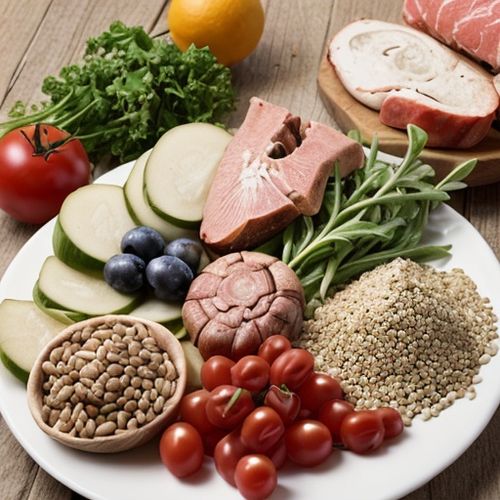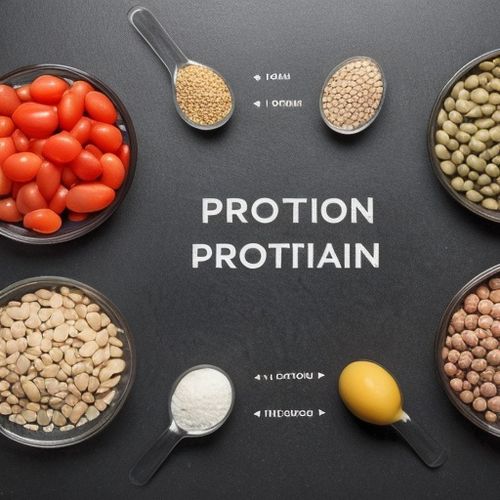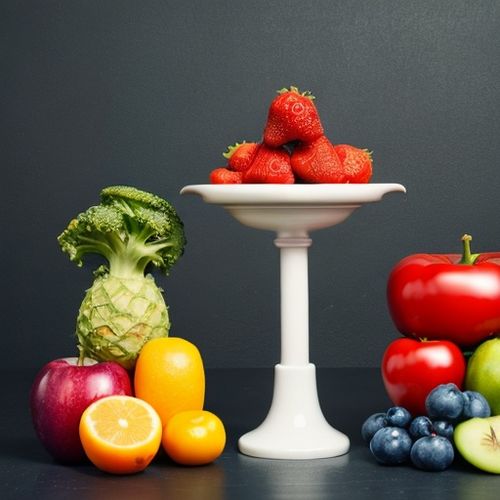In today's fast-paced world, maintaining a healthy lifestyle can often seem like a daunting task. However, one of the most fundamental and effective ways to achieve and sustain good health is through a balanced diet. A balanced diet is not just about eating less or more; it is about ensuring that our bodies receive all the essential nutrients they need to function optimally. This article will explore the importance of a balanced diet, its benefits, and practical ways to incorporate it into our daily lives.
What is a Balanced Diet?
A balanced diet is one that provides the body with the right amounts of carbohydrates, proteins, fats, vitamins, and minerals. It is a diet that includes a variety of foods from different food groups, ensuring that no single nutrient is consumed in excess or deficiency. The key to a balanced diet is moderation and variety. This means eating a mix of fruits, vegetables, whole grains, lean proteins, and healthy fats in appropriate portions.
The Benefits of a Balanced Diet
1. Weight Management: One of the most significant benefits of a balanced diet is its role in maintaining a healthy weight. By consuming the right balance of nutrients, the body is better able to regulate its metabolism. This helps prevent overeating and ensures that the body is using the nutrients efficiently. A balanced diet also helps in reducing the risk of obesity and related health issues such as diabetes and heart disease.
2. Improved Energy Levels: A diet rich in whole grains, lean proteins, and healthy fats provides a steady source of energy. These foods are digested slowly, ensuring that the body has a constant supply of fuel. On the other hand, diets high in refined sugars and unhealthy fats can lead to energy crashes and fatigue. By choosing nutrient-dense foods, one can experience improved stamina and productivity throughout the day.
3. Enhanced Immune System: A balanced diet is essential for a strong immune system. Vitamins and minerals found in fruits, vegetables, and whole grains play a crucial role in supporting the body's natural defense mechanisms. For example, vitamin C found in citrus fruits helps boost the immune system, while zinc found in nuts and seeds supports the development of white blood cells. A well-nourished body is better equipped to fight off infections and diseases.
4. Better Digestive Health: Consuming a variety of fiber-rich foods such as fruits, vegetables, and whole grains promotes healthy digestion. Fiber helps in the smooth passage of food through the digestive tract, preventing constipation and other digestive issues. Additionally, a balanced diet can help maintain a healthy gut microbiome, which is essential for overall digestive health and well-being.
5. Mental Health Benefits: Nutrition plays a vital role in mental health. Studies have shown that a balanced diet can help reduce the risk of developing mental health disorders such as depression and anxiety. Nutrients like omega-3 fatty acids found in fish, and B vitamins found in whole grains, have been linked to improved brain function and mood regulation.
Practical Tips for a Balanced Diet
1. Plan Your Meals: Planning your meals in advance can help ensure that you are consuming a variety of foods from different food groups. Make a weekly meal plan and include a mix of fruits, vegetables, lean proteins, whole grains, and healthy fats. This not only helps in maintaining a balanced diet but also saves time and reduces the temptation to eat unhealthy foods.
2. Read Food Labels: Understanding food labels is essential for making informed choices. Look for products that are low in added sugars, unhealthy fats, and sodium. Choose whole grain products over refined grains and opt for fresh fruits and vegetables over processed snacks.
3. Control Portion Sizes: Overeating, even healthy foods, can lead to weight gain. Be mindful of portion sizes and use smaller plates to help control the amount of food you eat. Eating slowly and savoring each bite can also help in feeling full faster.
4. Stay Hydrated: Water is an essential component of a balanced diet. Aim to drink at least eight glasses of water per day. Avoid sugary drinks and limit your intake of caffeine and alcohol. Staying hydrated helps in maintaining healthy skin, regulating body temperature, and supporting overall bodily functions.
5. Incorporate Fruits and Vegetables: Aim to fill half your plate with fruits and vegetables at every meal. They are rich in vitamins, minerals, and fiber, and can be easily incorporated into salads, smoothies, or as snacks. Try to include a variety of colors to ensure you are getting a wide range of nutrients.
6. Choose Lean Proteins: Proteins are essential for building and repairing tissues in the body. Opt for lean sources of protein such as chicken, turkey, fish, beans, and lentils. These foods are not only rich in protein but also low in unhealthy fats.
7. Limit Processed Foods: Processed foods are often high in unhealthy fats, sugars, and sodium. Limit your intake of these foods and choose whole, unprocessed foods whenever possible. Cooking at home allows you to have more control over the ingredients and ensure that your meals are nutritious.
A balanced diet is the cornerstone of a healthy lifestyle. It provides the body with the essential nutrients it needs to function optimally, supports weight management, enhances energy levels, boosts the immune system, and promotes mental well-being. By making small, sustainable changes to our eating habits, we can achieve a balanced diet and enjoy the numerous benefits it offers. Remember, the key to a balanced diet is moderation and variety. Start by incorporating more fruits, vegetables, whole grains, and lean proteins into your meals, and gradually reduce your intake of unhealthy foods. With a little planning and effort, a balanced diet can become a natural part of your daily routine, leading to a healthier and happier life.

By Samuel Cooper/Apr 16, 2025

By James Moore/Apr 16, 2025

By Sophia Lewis/Apr 16, 2025

By Michael Brown/Apr 16, 2025

By Christopher Harris/Apr 16, 2025

By Natalie Campbell/Apr 16, 2025

By George Bailey/Apr 16, 2025

By Thomas Roberts/Apr 16, 2025

By Natalie Campbell/Apr 16, 2025

By John Smith/Apr 16, 2025

By Emma Thompson/Apr 15, 2025

By Lily Simpson/Apr 15, 2025

By Noah Bell/Apr 15, 2025

By Victoria Gonzalez/Apr 15, 2025

By Benjamin Evans/Apr 15, 2025

By Joshua Howard/Apr 15, 2025

By Daniel Scott/Apr 15, 2025

By Amanda Phillips/Apr 15, 2025

By James Moore/Apr 15, 2025

By Grace Cox/Apr 15, 2025